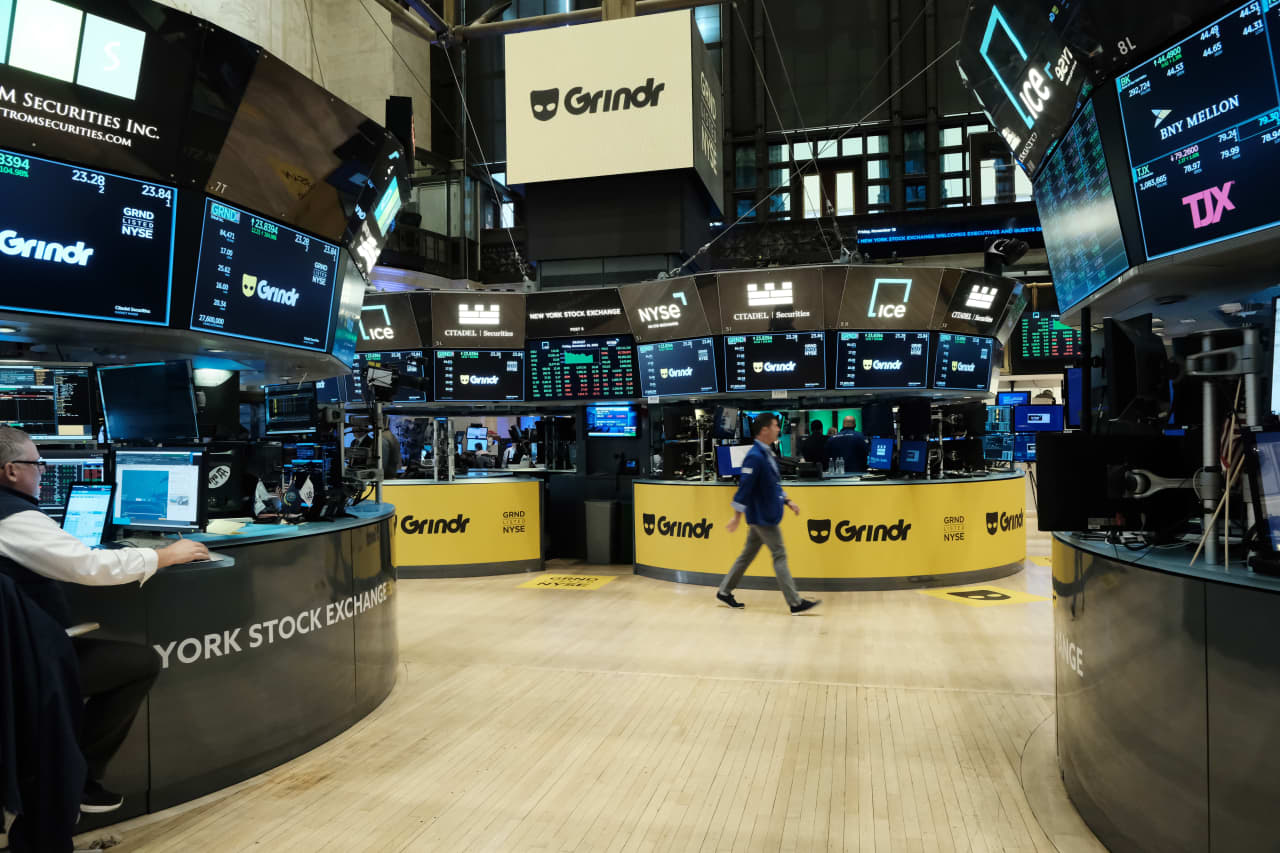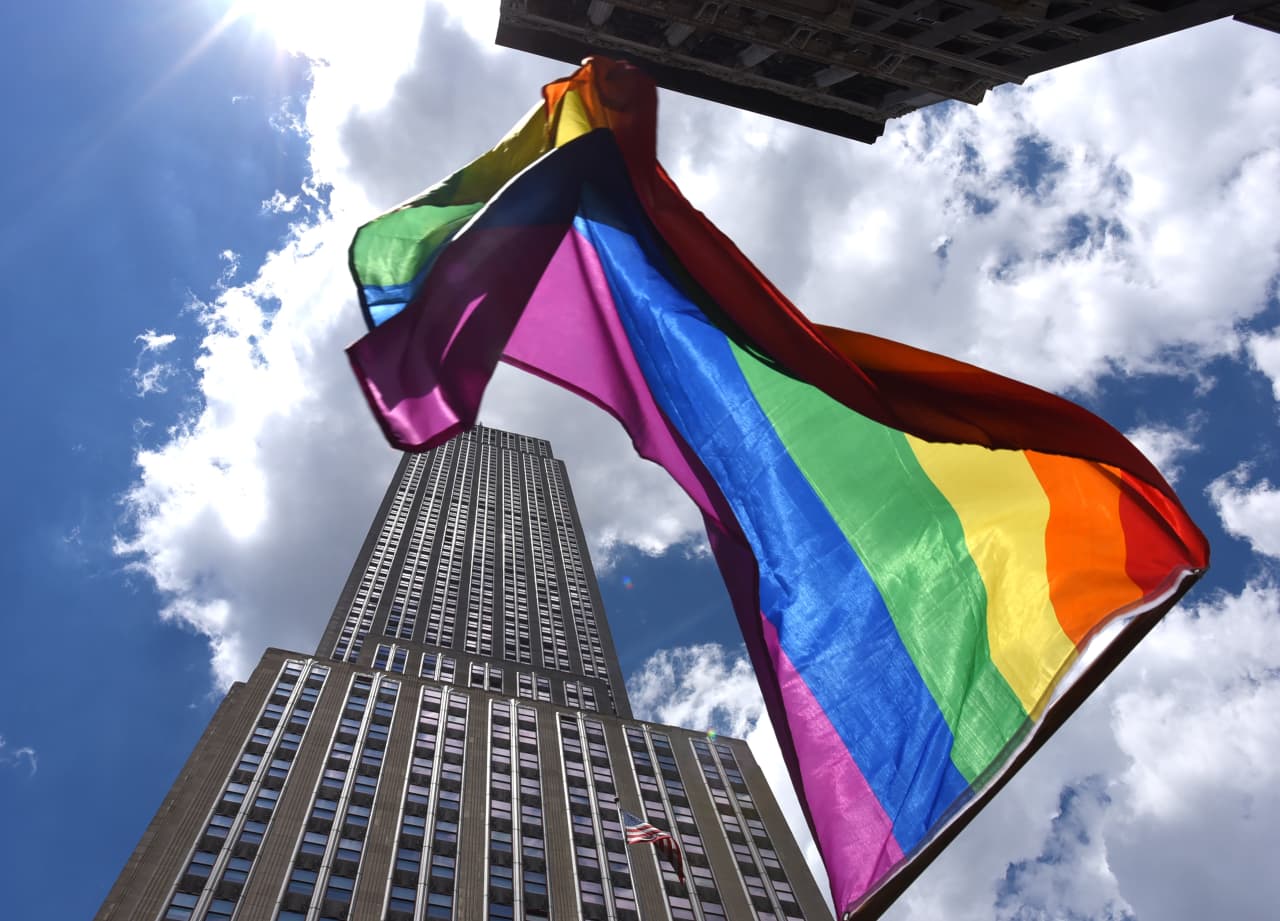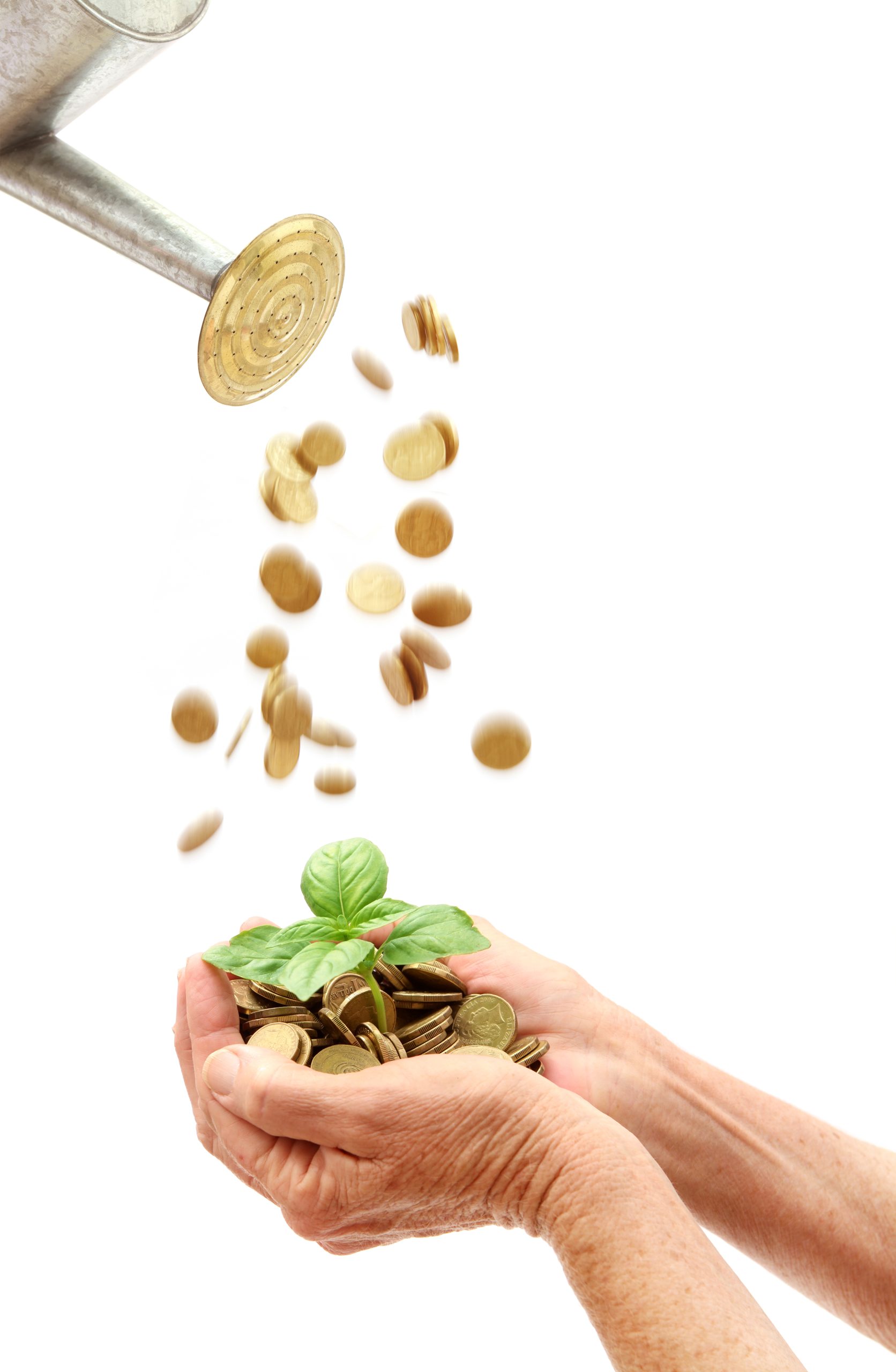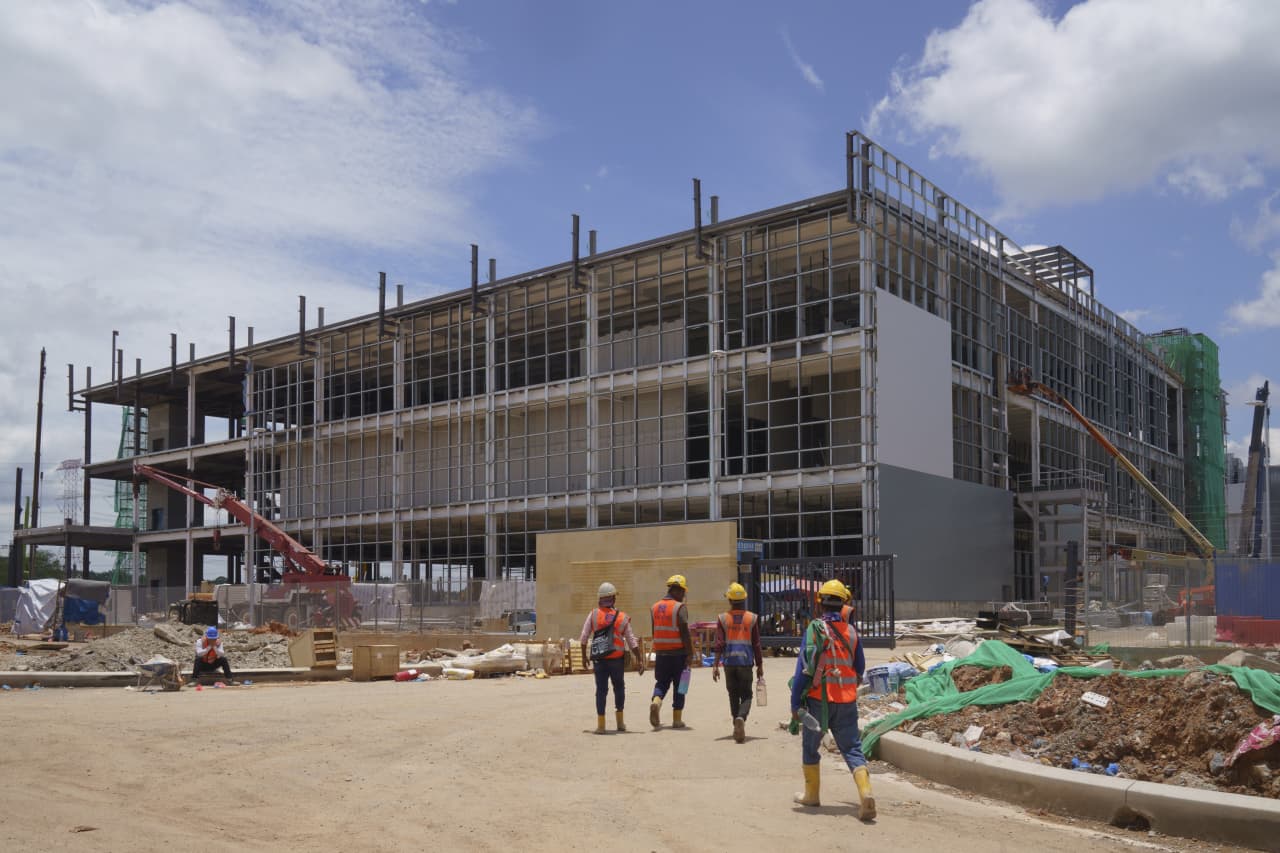Finding LGBTQ-Focused Investments Can Be Difficult. Here’s Where to Begin.
While nearly half of U.S. investors surveyed by Morgan Stanley want to invest in companies led by or making products and services for the LGBTQ community, these investments are difficult to find unless you know where to look.
Several LGBTQ-focused ETFs failed in recent years due to lack of investment, though stock investors can still put money in firms with openly queer leadership, such as Tim Cook at Apple. While opportunities for LGBTQ investments stretch across asset classes—startups attract the most attention.
For an answer as to whether this strategy can be successful, look at Grindr. One of the most prominent LGBTQ startups, the social networking app went public in 2022 and has a US$1.78 billion market cap today.
“Almost in every industry that exists, there is an LGBTQ person building [a company],” says Jackson Block, CEO of New York-based LGBT+ VC, a nonprofit addressing investment in the LGBTQ community. This means wide-ranging opportunities to invest in privately-held LGBTQ companies.
Identifying such investments often centres on two key criteria, says William Burckart, co-founder of Colorful Capital, a venture capital firm that invests in early-stage LGBTQ startups: Investors want to know whether someone in the community leads the company or if they are the target market for products and services.
Individuals and families can invest directly in companies getting off the ground or in a growing number of niche funds. Colorful Capital and Gaingels are among several firms that have formed specifically to address a longstanding lack of opportunities for LGBTQ startup founders. Others, like Backstage Capital or Elevate Capital, focus on underserved founders more broadly, including those who are LGBTQ.
According to research from StartOut, a San Francisco-headquartered LGBTQ entrepreneurship nonprofit, only 0.5% of venture funding goes to LGBTQ founders, yet they create 44% more exits, where equity investors earn capital gains through the sale or stock listing of the company, and 114% more patents than the average founder.
Colorful Capital chose to invest in seed- and early-stage funding after determining it was the “glaring gap” that needed to be filled based on conversations with LGBTQ founders, says Burckart.
Backstage Capital and Gaingels, which are syndicates with multiple investors, will support companies at several stages of development. Meanwhile, Elevate Capital, which counts 7% of founders it supports as LGBTQ, offers three funds for investors depending on what stage of investment and type of business they are interested in.
There are economic reasons to consider LGBTQ investments: Multiple studies show correlations between diversity among firm leadership and company performance as measured by internal rates of return, risk management factors, and firm valuations. “From a purely financial benefits perspective, there’s real value in beginning to embrace and integrate that kind of diverse thinking,” Burckart says.
Gaingels, whose members have invested more than US$800 million since 2019, principally invests in health, fintech, and enterprise software, according to Dealroom.co. Recent deals include taking part in a post-seed, series A funding round for San Francisco-based social care platform Grayce and a seed-funding round for Menlo Park, Calif.-based financial community platform AfterHour.
More than 70 unicorns—firms that have reached US$1 billion valuations—have been funded at different stages by Gaingels. These include Seattle-based, goal-oriented telehealth platform Ro and Dapper Labs, a Vancouver-based digital games and entertainment firm.
Block, whose organisation has a mission to educate, train, and mobilise 10,000 LGBTQ and ally investors by 2030, suggests wealthy investors enter the venture capital fray by becoming a limited partner in a fund. This allows investors to get involved with less risk and comparatively steady return expectations compared to angel investing.
Geographically, many LGBTQ companies attracting investment are North American, though regional funds exist in Europe and Latin America, Block says.
For wealthy families, investing in LGBTQ-related businesses can be a strategy to engage the next generation, as products and investment strategies that advance LGBTQ equity and inclusion are in high demand among younger investors (56% of millennials and 67% of Gen Z, according to Morgan Stanley). This is unsurprising, given that Gallup polling suggests more than one in five Gen Z adults and one in 10 millennials identify as LGBTQ.
Morgan Stanley’s Institute for Sustainable Investing estimates that those interested in LGBTQ investments control about one-third, or US$20 trillion of U.S. wealth managers’ assets under management. With the impending generational wealth transfer, the bank says control of interested investors could grow to nearly half of the assets under management at all wealth managers. Block expects that creating opportunities for LGBTQ fund managers will also help grow LGBTQ investments, and will create a “natural pipeline” for them to find roles with major investment banks.
In identifying investments, Morgan Stanley offers strategies that screen-out certain companies, says Emily Thomas, head of Investing with Impact, Morgan Stanley Wealth Management, the bank’s platform featuring funds and other investment vehicles for values-based investing.
“Per our survey, 76% of investors interested in LGBTQ impact objectives are also interested in the ability to exclude companies that don’t explicitly include protections for LGBTQ people in their labour rights policies,” Thomas says.

Getty Images
There are also companies owned or run by individuals with family and friends who are LGBTQ and want to make sure their company helps support and gives back to the community.
Recently, a banking executive spoke about their experience being raised by lesbian parents at an LGBT+ VC ally event. Morgan Stanley reports 76% of heterosexual investors with an LGBTQ household member want such investment options, more than the general population.
The biggest barrier to finding LGBTQ investment strategies is being able to gather data on the community, Thomas says.
Individuals can have reservations about sharing information regarding sexual orientation or gender identity—54% of LGBTQ individuals in the U.S. live in areas without state-level protections. Ongoing stigma against the community also prevents some people from openly identifying as LGBTQ.
“Only with more data can we know the extent of inclusion in, and exclusion from, the structures that make up the foundation upon which the U.S. economy is built,” Colorful Capital said in a May report.
(There are forces trying to change this. Earlier this year, the U.S. Census Bureau’s monthly American Community Survey announced it is looking into asking about sexual orientation and gender identity.)
Because of the sensitive nature of data and laws around personally identifiable information, there isn’t readily available data on the percent of employees who identify as LGBTQ or what representation looks like at senior levels, unlike for gender diversity. Comparably more data is available on corporate policies on LGBTQ matters, so some asset managers use that to identify companies as investments, Thomas says.
“For example, [an] asset manager can tilt portfolios toward companies that offer domestic partner benefits to same-sex couples,” she says. Other strategies could include screening for companies that offer LGBTQ diversity training or have not faced Equal Employment Opportunity Commission disciplinary actions. Investors can also use benchmarks such as the Human Rights Campaign Corporate Equality Index, which scores about 1,400 publicly and privately held firms on several areas of LGBTQ policies and practices, including whether they offer domestic partner and transgender-inclusive benefits,
Institutional Allocators for Diversity, Equity, & Inclusion, a nonprofit group of asset owners aiming to promote those principles within investment management, has a publicly available diverse manager database, which allows funds to self-report LGBTQ affiliation, Thomas says.
 Copyright 2020, Dow Jones & Company, Inc. All Rights Reserved Worldwide. LEARN MORE
Copyright 2020, Dow Jones & Company, Inc. All Rights Reserved Worldwide. LEARN MORE
This stylish family home combines a classic palette and finishes with a flexible floorplan
Just 55 minutes from Sydney, make this your creative getaway located in the majestic Hawkesbury region.
Impact investing is becoming more mainstream as larger, institutional asset owners drive more money into the sector, according to the nonprofit Global Impact Investing Network in New York.
In the GIIN’s State of the Market 2024 report, published late last month, researchers found that assets allocated to impact-investing strategies by repeat survey responders grew by a compound annual growth rate (CAGR) of 14% over the last five years.
These 71 responders to both the 2019 and 2024 surveys saw their total impact assets under management grow to US$249 billion this year from US$129 billion five years ago.
Medium- and large-size investors were largely responsible for the strong impact returns: Medium-size investors posted a median CAGR of 11% a year over the five-year period, and large-size investors posted a median CAGR of 14% a year.
Interestingly, the CAGR of assets held by small investors dropped by a median of 14% a year.
“When we drill down behind the compound annual growth of the assets that are being allocated to impact investing, it’s largely those larger investors that are actually driving it,” says Dean Hand, the GIIN’s chief research officer.
Overall, the GIIN surveyed 305 investors with a combined US$490 billion under management from 39 countries. Nearly three-quarters of the responders were investment managers, while 10% were foundations, and 3% were family offices. Development finance institutions, institutional asset owners, and companies represented most of the rest.
The majority of impact strategies are executed through private-equity, but public debt and equity have been the fastest-growing asset classes over the past five years, the report said. Public debt is growing at a CAGR of 32%, and public equity is growing at a CAGR of 19%. That compares to a CAGR of 17% for private equity and 7% for private debt.
According to the GIIN, the rise in public impact assets is being driven by larger investors, likely institutions.
Private equity has traditionally served as an ideal way to execute impact strategies, as it allows investors to select vehicles specifically designed to create a positive social or environmental impact by, for example, providing loans to smallholder farmers in Africa or by supporting fledging renewable energy technologies.
Future Returns: Preqin expects managers to rely on family offices, private banks, and individual investors for growth in the next six years
But today, institutional investors are looking across their portfolios—encompassing both private and public assets—to achieve their impact goals.
“Institutional asset owners are saying, ‘In the interests of our ultimate beneficiaries, we probably need to start driving these strategies across our assets,’” Hand says. Instead of carving out a dedicated impact strategy, these investors are taking “a holistic portfolio approach.”
An institutional manager may want to address issues such as climate change, healthcare costs, and local economic growth so it can support a better quality of life for its beneficiaries.
To achieve these goals, the manager could invest across a range of private debt, private equity, and real estate.
But the public markets offer opportunities, too. Using public debt, a manager could, for example, invest in green bonds, regional bank bonds, or healthcare social bonds. In public equity, it could invest in green-power storage technologies, minority-focused real-estate trusts, and in pharmaceutical and medical-care company stocks with the aim of influencing them to lower the costs of care, according to an example the GIIN lays out in a separate report on institutional strategies.
Influencing companies to act in the best interests of society and the environment is increasingly being done through such shareholder advocacy, either directly through ownership in individual stocks or through fund vehicles.
“They’re trying to move their portfolio companies to actually solving some of the challenges that exist,” Hand says.
Although the rate of growth in public strategies for impact is brisk, among survey respondents investments in public debt totaled only 12% of assets and just 7% in public equity. Private equity, however, grabs 43% of these investors’ assets.
Within private equity, Hand also discerns more evidence of maturity in the impact sector. That’s because more impact-oriented asset owners invest in mature and growth-stage companies, which are favored by larger asset owners that have more substantial assets to put to work.
The GIIN State of the Market report also found that impact asset owners are largely happy with both the financial performance and impact results of their holdings.
About three-quarters of those surveyed were seeking risk-adjusted, market-rate returns, although foundations were an exception as 68% sought below-market returns, the report said. Overall, 86% reported their investments were performing in line or above their expectations—even when their targets were not met—and 90% said the same for their impact returns.
Private-equity posted the strongest results, returning 17% on average, although that was less than the 19% targeted return. By contrast, public equity returned 11%, above a 10% target.
The fact some asset classes over performed and others underperformed, shows that “normal economic forces are at play in the market,” Hand says.
Although investors are satisfied with their impact performance, they are still dealing with a fragmented approach for measuring it, the report said. “Despite this, over two-thirds of investors are incorporating impact criteria into their investment governance documents, signalling a significant shift toward formalising impact considerations in decision-making processes,” it said.
Also, more investors are getting third-party verification of their results, which strengthens their accountability in the market.
“The satisfaction with performance is nice to see,” Hand says. “But we do need to see more about what’s happening in terms of investors being able to actually track both the impact performance in real terms as well as the financial performance in real terms.”
This stylish family home combines a classic palette and finishes with a flexible floorplan
Just 55 minutes from Sydney, make this your creative getaway located in the majestic Hawkesbury region.






















